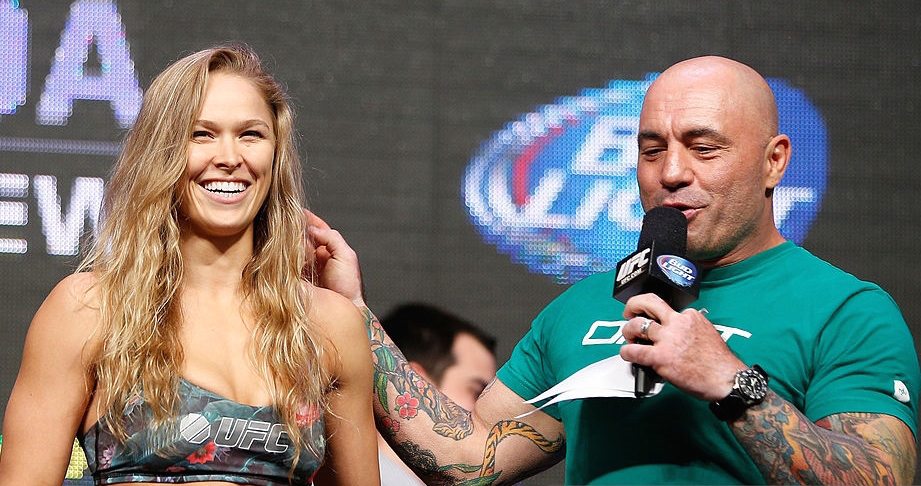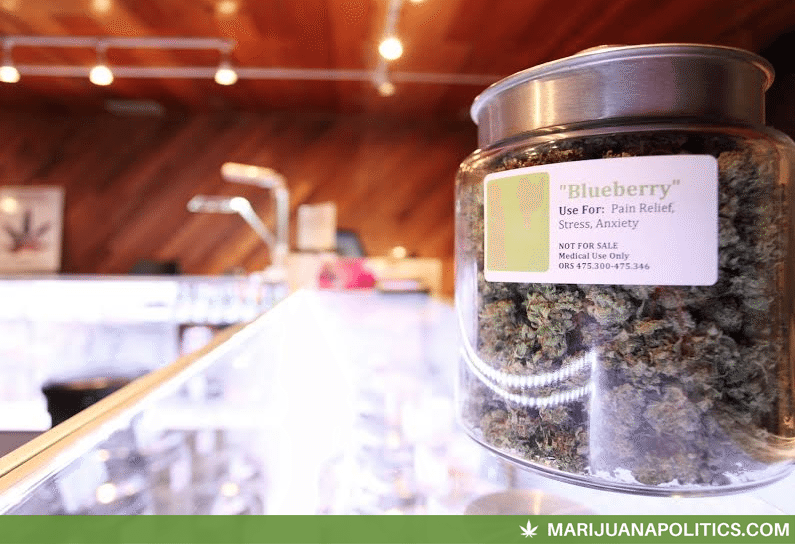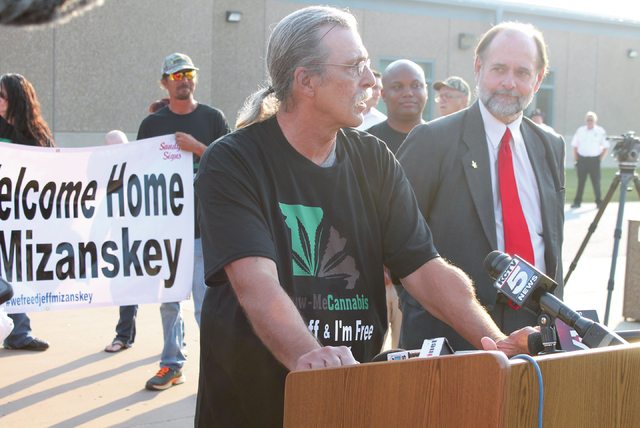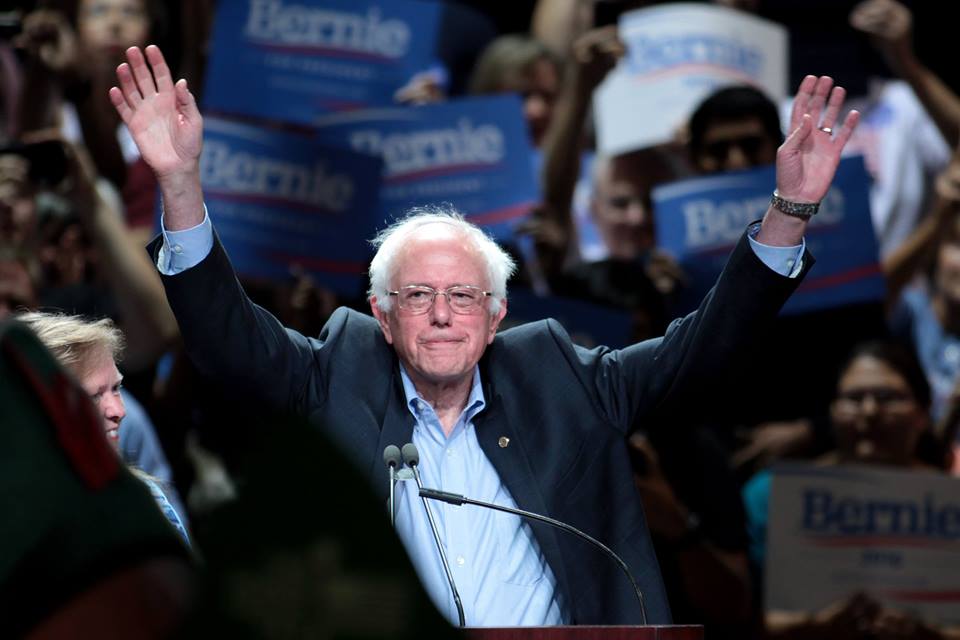In case you missed it, (I certainly did) comedian, UFC color commentator and outspoken cannabis legalization advocate, Joe Rogan, implied (basically stated) that he and UFC champion Ronda Rousey consumed cannabis before her first appearance on his podcast back in 2011. The host of the Joe Rogan Experience recorded a podcast at the end of August with “Rowdy” Rousey and her coach Edmond Tarverdyan, following the champion’s brutally impressive victory over Bethe Correia at UFC 190 in Brazil.
Rogan’s podcasts can meander from various topic to topic as everyone goes with the flow and seems to talk as if no one else is listening. Joe mentions the fact that Rousey’s mom, a former judo world champion, is an impressive person, Ronda talks about how her “intense” mom and pressure-filled household (she was once the loser of the family) prepared her for high-pressure events today, including appearing on Rogan’s podcasts. After the champ talks about being a fan of the Joe Rogan Experience and how amped up she was for her first appearance on the podcast, Rogan states that, “If I remember correctly, we might have been medicated at the time as well. Might have been some plant burning going on.” Rousey and her coach both giggle and there is no mention to deny the implication that cannabis was consumed by the two. The telling statement by Rogan occurs at 15:17 into the podcast:
The previous podcast with Rousey occurred before women were even competing in the UFC, as she was a rising star in the now-defunct Strikeforce league. Rousey’s first appearance on the Joe Rogan Experience included jiu jitsu legend Eddie Bravo as a guest, an admitted cannabis consumer who has credited cannabis with helping his creativity in developing unique jiu jitsu techniques. If you tune into that podcast, Bravo, Rousey and Rogan are all laughing at the beginning and seem to certainly be enjoying themselves.
Rousey has made headlines recently for standing up for her friend Nick Diaz, who was suspended for five years by the Nevada State Athletic Association for testing positive for marijuana. Rousey has called for an end to testing for marijuana as it isn’t performance enhancing, thus such tests are an invasion of privacy. The UFC women’s bantamweight champion is the most dominating mixed martial artist today, fueled partially by hemp seeds, and isn’t afraid to be herself and speak her mind, even as she has reached mainstream stardom.
Ronda Rousey joins the growing list of world-class athletes that have utilized cannabis, from track legend Usain Bolt to Olympic gold medalist swimmer Michael Phelps. According to Joe Rogan, a majority of fighters in the UFC use marijuana, which is certainly safer than pain narcotics pushed upon our society. As the people rally around around marijuana legalization, it is only a matter of time before various athletic regulatory bodies catch up. It’s taking too long, but with world champions like Ronda Rousey speaking out, sports competitions will eventually catch up and stop treating cannabis the same as steroids.
Consuming cannabis hasn’t prevented Rousey from becoming a dominating UFC champion.




















